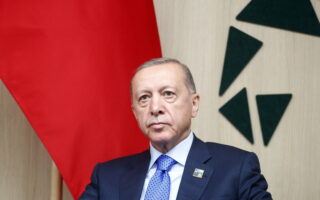USA, Greece and Turkey: Interdependent relationships

Developments in relations between Greece and Turkey, between Greece and the United States, and between the United States and Turkey show how interdependent they all are. Greece’s purchase of F-35 aircraft, the upgrading and purchase of F-16s by Turkey, the relaxing of tensions between the two neighbors, and Turkey’s ratification of Sweden’s NATO accession have the United States’ coordinating role as their common point. In this already complicated environment, we need to note the domestic dynamics which add another critical dimension to all these issues. These include the local elections in Turkey on March 31, European Parliament elections on June 6-9, and American presidential and congressional elections on November 5, all of which will play a decisive role in developments.
In Turkey, Recep Tayyip Erdogan’s effort to “reconquer” Istanbul, which his party lost in the last elections, will determine the country’s future for many years. (Ankara and Izmir, which are also controlled by the opposition, do not have the political and symbolic weight of the metropolis.) If Erdogan achieves his aim, he is expected to move ahead with constitutional changes which will, in effect, allow him to rule until he dies. If, however, Ekrem Imamoglu is re-elected, then he will be in a strong position to take over the CHP party and to compete with Erdogan for the country’s presidency in the next elections. Turkish analysts believe that if Erdogan today projects a more reasonable presence on many fronts – from foreign policy to the war on corruption – this is to make it seem as if there is no need for a strong opposition, enabling him to attract more voters to his side. They predict that if he wins Istanbul he will show his true colors. So, the question for those who have open issues with Turkey is whether this is the time to make deals or whether we should first see how the political scene in the country develops after March.
A return of Donald Trump would encourage Erdogan’s revisionist fervor, whereas a Biden victory would force the Turkish president to accept compromises in foreign policy
This year’s European Parliament elections find the Union with a war on its border and the possibility of a regional war in the Middle East, along with serious economic and social problems that are encouraging the rise of the extreme right and other enemies of Europe’s unification. The elections in June, and the leadership of the major institutions (Commission, Council and Parliament) that will arise from them, will determine the EU’s position towards Turkey, among other things.
Regarding the United States, a return of Donald Trump would encourage Erdogan’s revisionist fervor, whereas a Biden victory would force the Turkish president to accept compromises in foreign policy, as he appears to be doing today.
On this shifting terrain, haste and inertia are equally dangerous.





